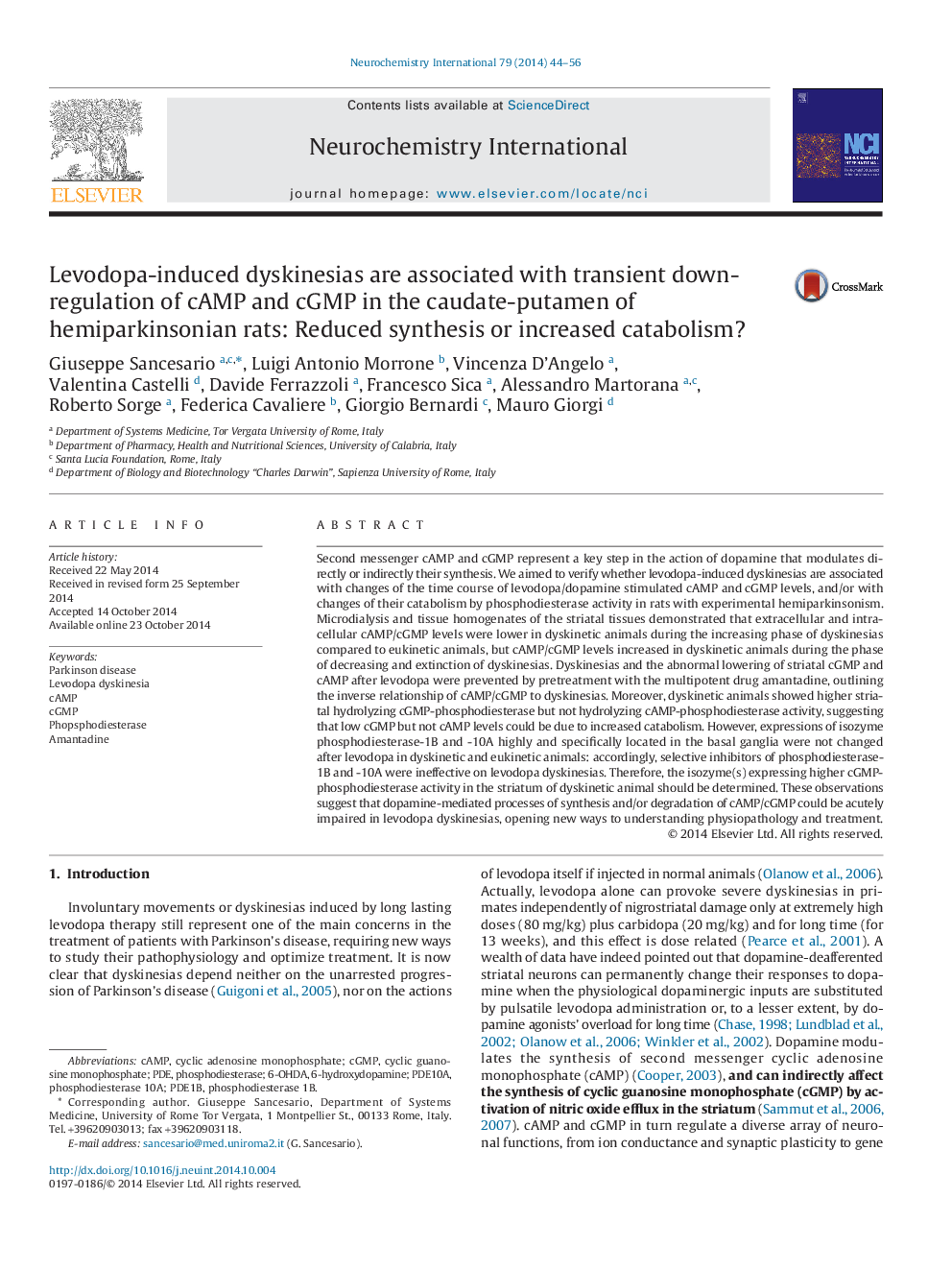| Article ID | Journal | Published Year | Pages | File Type |
|---|---|---|---|---|
| 2200478 | Neurochemistry International | 2014 | 13 Pages |
•Striatal cAMP and cGMP are lower in levodopa dyskinesia.•Amantadine prevents dyskinesia symptomatically improving cAMP and cGMP levels.•Striatal cGMP-PDE but not cAMP-PDE activity increases in levodopa dyskinesia.•These suggest reduced cAMP synthesis and increased cGMP catabolism in dyskinesia.
Second messenger cAMP and cGMP represent a key step in the action of dopamine that modulates directly or indirectly their synthesis. We aimed to verify whether levodopa-induced dyskinesias are associated with changes of the time course of levodopa/dopamine stimulated cAMP and cGMP levels, and/or with changes of their catabolism by phosphodiesterase activity in rats with experimental hemiparkinsonism. Microdialysis and tissue homogenates of the striatal tissues demonstrated that extracellular and intracellular cAMP/cGMP levels were lower in dyskinetic animals during the increasing phase of dyskinesias compared to eukinetic animals, but cAMP/cGMP levels increased in dyskinetic animals during the phase of decreasing and extinction of dyskinesias. Dyskinesias and the abnormal lowering of striatal cGMP and cAMP after levodopa were prevented by pretreatment with the multipotent drug amantadine, outlining the inverse relationship of cAMP/cGMP to dyskinesias. Moreover, dyskinetic animals showed higher striatal hydrolyzing cGMP-phosphodiesterase but not hydrolyzing cAMP-phosphodiesterase activity, suggesting that low cGMP but not cAMP levels could be due to increased catabolism. However, expressions of isozyme phosphodiesterase-1B and -10A highly and specifically located in the basal ganglia were not changed after levodopa in dyskinetic and eukinetic animals: accordingly, selective inhibitors of phosphodiesterase-1B and -10A were ineffective on levodopa dyskinesias. Therefore, the isozyme(s) expressing higher cGMP-phosphodiesterase activity in the striatum of dyskinetic animal should be determined. These observations suggest that dopamine-mediated processes of synthesis and/or degradation of cAMP/cGMP could be acutely impaired in levodopa dyskinesias, opening new ways to understanding physiopathology and treatment.
